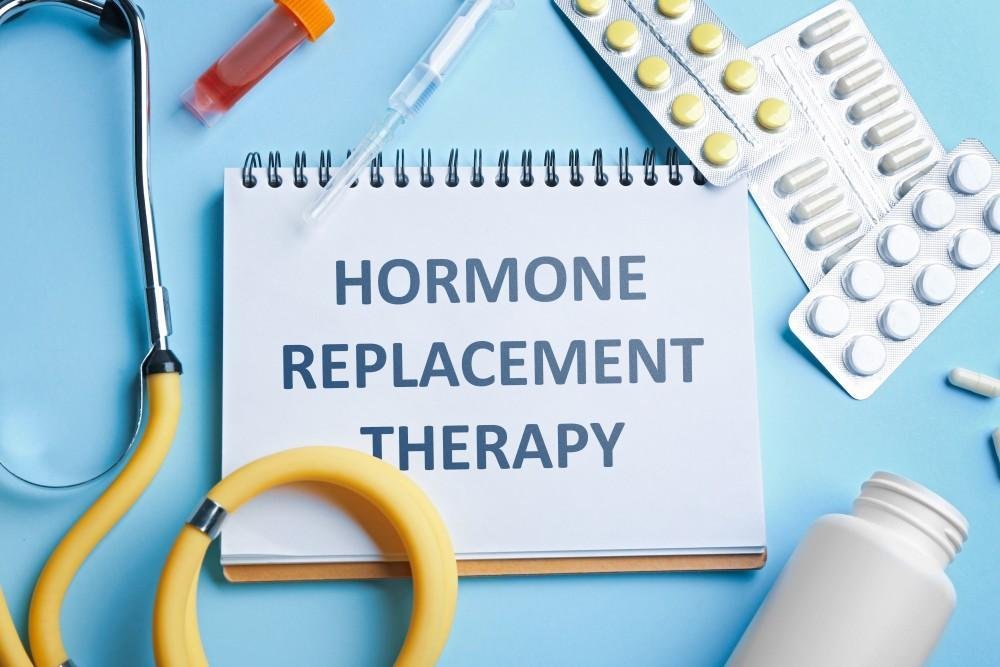Menopause marks a significant hormonal shift in a woman’s life, often accompanied by a range of uncomfortable symptoms. While menopause is a natural biological process, it can bring disruptive changes that affect physical health, emotional well-being, and overall quality of life.
Hormone Therapy (HT)—also known as Hormone Replacement Therapy (HRT)—is one of the most effective treatments available for managing these symptoms. In this article, we’ll explore how hormone therapy works to relieve some of the most common and challenging symptoms of menopause: hot flashes, night sweats, mood changes, and vaginal dryness.
What Causes Menopausal Symptoms?
During perimenopause and menopause, the ovaries gradually reduce the production of estrogen and progesterone, two hormones that regulate the menstrual cycle and support reproductive health. This hormonal decline leads to symptoms such as:
- Vasomotor symptoms (hot flashes, night sweats)
- Genitourinary changes (vaginal dryness, painful intercourse)
- Mood fluctuations (irritability, anxiety, depression)
- Sleep disturbances and fatigue
Hormone therapy works by replenishing declining estrogen levels (and sometimes progesterone), helping restore hormonal balance and alleviate these symptoms.
1. Relief from Hot Flashes
What Are Hot Flashes?
Hot flashes are sudden sensations of heat that usually start in the chest, neck, and face and may be accompanied by sweating, flushing, and a rapid heartbeat. They can last anywhere from a few seconds to several minutes and vary in intensity.
How Hormone Therapy Helps:
- Estrogen is highly effective in reducing the frequency and severity of hot flashes.
- Studies show that systemic hormone therapy (oral or transdermal) can decrease hot flashes by 75% or more in many women.
- It is the gold standard treatment for moderate to severe vasomotor symptoms.
Forms of HT That Work:
- Estrogen-only therapy (for women without a uterus)
- Combined estrogen-progestogen therapy (for women with an intact uterus)
- Delivered via pill, patch, gel, or spray
2. Control of Night Sweats
What Are Night Sweats?
Night sweats are intense hot flashes that occur during sleep and often lead to waking up drenched in sweat, followed by chills or difficulty returning to sleep.
How Hormone Therapy Helps:
- Estrogen therapy helps regulate body temperature and reduces episodes of night sweats.
- With improved temperature control, many women experience better sleep quality, reduced nighttime awakenings, and less fatigue during the day.
Results You Can Expect:
- Relief often begins within a few weeks of starting therapy.
- Some women report a significant improvement in sleep patterns and daytime energy.
3. Improvement in Mood and Emotional Stability
Why Mood Changes Occur:
Hormonal fluctuations during menopause can affect neurotransmitters like serotonin and dopamine, leading to symptoms such as:
- Irritability
- Anxiety
- Mood swings
- Depression
Sleep disturbances, hot flashes, and physical discomfort can further exacerbate these emotional changes.
How Hormone Therapy Helps:
- Estrogen has neuroprotective and mood-regulating effects, especially when started early in the menopausal transition.
- Women often report an improvement in mood, motivation, and overall sense of well-being after beginning HT.
- Some studies show estrogen can reduce the risk of depression in perimenopausal women, particularly when combined with therapy or antidepressants if needed.
Important Note:
- Hormone therapy may not be sufficient for women with clinical depression—in these cases, a combination of hormone therapy and mental health support is recommended.
4. Relief from Vaginal Dryness and Discomfort
Why It Happens:
Estrogen decline causes thinning of the vaginal tissues and a reduction in natural lubrication, leading to:
- Vaginal dryness
- Burning or itching
- Painful intercourse (dyspareunia)
- Increased risk of urinary tract infections (UTIs)
This condition is known as Genitourinary Syndrome of Menopause (GSM).
How Hormone Therapy Helps:
- Local (vaginal) estrogen therapy delivers low doses of estrogen directly to vaginal tissues, improving:
- Moisture levels
- Tissue elasticity
- pH balance and vaginal flora
- Systemic hormone therapy (oral or transdermal) may also help, but localized treatments are preferred for vaginal symptoms alone.
Common Forms:
- Vaginal creams, rings, or tablets
- These are low-dose and typically do not raise estrogen levels significantly in the bloodstream
Additional Benefits of Hormone Therapy
While hot flashes, mood swings, and vaginal dryness are often the most pressing concerns, hormone therapy offers other benefits, such as:
- Preserving bone density and preventing osteoporosis
- Improving sleep quality
- Enhancing libido and sexual satisfaction
- Supporting cognitive function in some cases
Is Hormone Therapy Right for You?
Hormone therapy isn’t a one-size-fits-all solution. It’s most effective and safest for:
- Women under age 60 or within 10 years of menopause onset
- Those experiencing moderate to severe symptoms
- Women without contraindications like breast cancer, heart disease, or history of blood clots
Always consult your healthcare provider to discuss:
- Your symptoms and severity
- Personal and family medical history
- Risks vs. benefits of hormone therapy
- Whether systemic or local therapy is more appropriate
Final Thoughts
Hormone therapy can offer profound relief for women going through menopause, especially those struggling with hot flashes, night sweats, mood changes, and vaginal dryness. With modern options available in a variety of forms—pills, patches, creams, and more—therapy can be tailored to your individual needs and lifestyle.
If menopause symptoms are disrupting your life, don’t suffer in silence. Talk to your doctor about whether hormone therapy could be the right choice for you.




